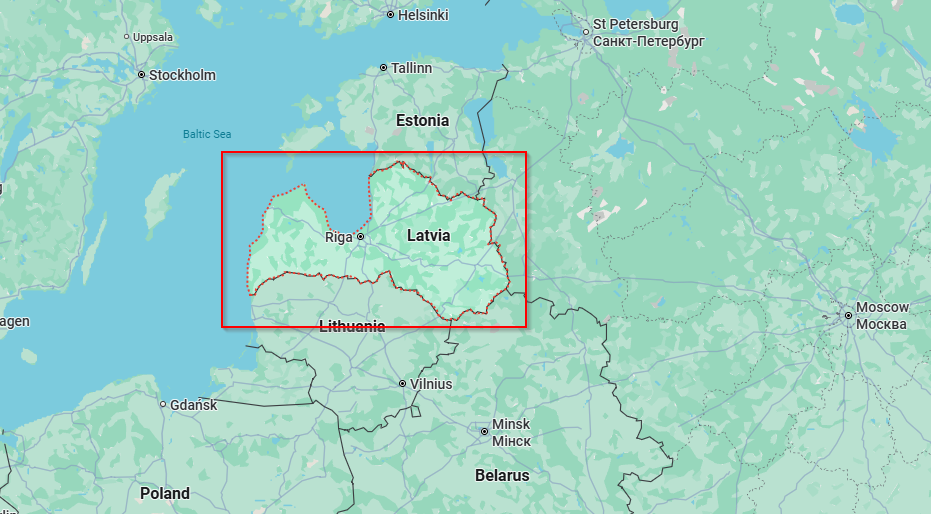Latvia is rapidly becoming a springboard for SMEs, tech scale-ups and holding companies that need seamless EU market access, low overhead and a business-friendly tax regime. Below is a concise summary of Latvia’s main corporLatvia: Corporate Income Tax Environment – 2025 Business Guide
Why Latvia? Main Features for Businesses
- Strategic EU Gateway: Latvia is positioned as a crucial entry point to the EU, Scandinavia, Russia, and Central Asia, with world-class ports (Riga, Ventspils), rail, and logistics infrastructure.
- Flexible, Growth-Friendly Tax System: Latvia offers a unique regime with 0% tax on retained and reinvested profits, taxing only distributed profits (20% nominal, effective 25% due to grossing-up).
- Digital Nation: Latvia is a leader in digital government and e-services, with most tax and registry procedures online.
- Cost-Efficiency: The country boasts competitive labor, office, and operating costs, and a highly educated, multilingual workforce.
- Best Suited For: Trading, holding/finance entities, logistics, IT/tech startups, export-oriented manufacturing, and businesses emphasizing reinvestment or group structures.

Core Legal Forms of Companies
| Legal Form | Minimum Capital | Founders | Notable Features |
|---|---|---|---|
| SIA (LLC) | €2,800 (€1 for micro) | 1+ | Most popular; limited liability; remote setup; micro SIA < €2,800 |
| AS (Joint Stock Co) | €35,000 | 1+ | For larger/public companies; may list shares; more complex |
| Branch Office | None | Parent company | Not a separate legal entity; Quick Market Entry |
| Representative Office | None | Parent company | No business activity; for market research/liaison |
Key Points:
- 100% foreign ownership permitted.
- No residency required for shareholders/directors.
- Micro-capital SIAs have restrictions on profit distribution and who can be a founder.
- Shares may be held by individuals or legal entities.
- Electronic registration and management possible.
Taxation System and Value Optimization
Corporate Income Tax (CIT) Regime
- Taxable Base: Only on distributed profits (dividends or deemed distributions).
- Rates: 20% statutory, calculated as 20% on grossed-up base (e.g. €80,000 dividend/0.8 = €100,000, taxed at €20,000, i.e. net 25%).
- Retained/invested profits: 0% CIT indefinitely—huge cash-flow and growth advantage.
- Deemed Distributions: Includes non-business expenses, excessive representation costs, fringe benefits, thin capitalization breaches.
Optimization Opportunities:
- Avoiding distributions allows tax-free reinvestment, facilitating capital accumulation or group internal loans.
- Intra-group dividends and capital gains may be untaxed under participation exemption.
- Profits shifted to future years for optimal distribution timing.
- No deduction for business expenses/interest on distributed profit: careful planning needed with financial structure.
Special Regimes
- Micro-Enterprise Tax: Flat 25% replaces CIT, payroll, and PIT for businesses <€40,000 and <5 employees (transitioning to full CIT if thresholds exceeded).
- Holding Regime: EEA/EU dividends and gains usually exempt.
- Surcharges: Additional bank tax applies to credit institution profits.
Other Key Taxes
| Tax | Rate/Threshold | Notebook |
|---|---|---|
| WATT | Standard 21%; reduced 12/5% | Compulsory registration >€50,000 turnover/year |
| Social Security | Employer 23.59%, Employee 10.5% | Minimum base €740/month; cap ~€105,300/year |
| Payroll PIT | 20-31% progressive | Flat tax 20% for annual salary <€20,004 |
| WHT | 0-15% (div/interest/royalties) | Exempt for EEA/EU; treaties may apply |
| Real Estate Tax | 0.2%–3% | Municipality-set, value-based |
VAT Registration: Mandatory if sales >€50,000/year; voluntary registration applies for new exporters or group traders below the threshold.
Ease of Doing Business & Government Policy
- Rankings: Top 20 in World Bank Doing Business (pre-pandemic data), top-tier for trading across borders and starting a company.
- Digital Administration: All major filings (tax, registry, payroll) available online.
- Company Setup: 2–5 business days for SIA via e-platform.
- Lenient Policy Sectors: Logistics, transit, manufacturing, IT/ICT, shared services, green/renewable industries.
- Stricter/Regulated Sectors: Banking, insurance, energy/utilities, defense, and sectors requiring AML/CTF or strategic-sector compliance.
- EU Policy Alignment: Strong incentives for digitalization, innovation, and environmental impact investments.
Company Formation: Process, Cost, and Shareholding
Key Steps
- Name Reservation: Optional, online.
- Prepare Documents: Articles, incorporation resolution, identification of UBOs.
- Bank Account: Deposit share capital (50% of €2,800 for standard SIA, €1 for micro-SIA).
- Registration: File via Commercial Register (can be done remotely).
- Tax/VAT/SS Registration: Automatic or simultaneous; employer registration before hiring.
Timeline & Costs
| Item | Standard SIA | Micro SIA |
|---|---|---|
| Registry Fee | €150 (3 days) | €20 |
| Notary Fee | €30–€100 | Not required |
| Publication Fee | €27 | €27 |
| Share Capital Minimum | €2,800 (50% due) | €1–€2,799 |
- Professional Package: €1,600–€8,990 for turnkey setup with virtual office.
- Foreign Ownership: Permitted; shares can be held by locals or foreigners, individuals or legal entities.
- No local manager required, but a legal address in Latvia is mandatory.
Grants and Funding Opportunities
National & EU Avenues
- Digitalization Grants: Up to €10,000 for SME digital tools; up to €200,000 for AI and big-data adoption (co-finance 30–50%).
- SME and Startup Support: Early-stage loans/guarantees via Altum, Startup Support Law, free consultancy.
- EU Structural Funds: €18.5 million (2025) for digital, green, and export growth.
- Cross-Border Innovation: Sweden-Latvia projects, EmBRACE micro-project fund up to €170,000 per SME.
- Sectoral Grant Programs: Green tech, R&D, export, manufacturing upgrades.
- Export Support: Latvian Investment and Development Agency (LIAA) offers market-entry grants and advice.
Governance and Compliance
- Annual Reporting: All companies, regardless of activity, must file financial statements.
- Audit Requirement: If two of: assets >€4m, revenue >€8m, staff >50 (two years).
- CIT Filing: Only when dividends or deemed profits are distributed.
- VAT/Payroll Taxes: Monthly filings if registered.
- UBO Register: All companies must register ultimate beneficial owners.
- Transfer Pricing: Applies for controlled transactions >€250k (goods/services); documentation to be kept.
- ESG/CSRD: Gradual rollout for large companies in line with EU rules.
- Penalties: Up to €7,000 for report non-filing.
Conclusion
Latvia’s business environment in 2025 offers minimal CIT burden on retained earnings (0%), rapid company formation, transparent regulatory environment, and alignment with EU digital and funding priorities. Fast-growing companies, startups, and group structures especially benefit from the ability to reinvest profits tax-free—with taxation only upon actual or deemed distribution. Latvia’s digital government, strong funding support, and pro-export stance make it a cost-effective, innovation-friendly EU base for growth-oriented enterprises.
Key Advantages:
- No CIT on reinvested/retained earnings, only distributed profits (effective rate 25%).
- Fast, affordable company setup with 100% foreign ownership.
- Rich menu of digitalization and R&D grants, plus access to €18.5m+ in EU funds.
- Transparent, modern compliance and reporting requirements.
Considerations:
- Social security and payroll taxes significant for employers.
- Distribution strategies crucial for tax planning.
- New ESG and digital compliance requirements coming into force for larger companies.
Latvia remains one of Europe’s most dynamic, digital-friendly, and tax-flexible jurisdictions—strongly positioned for tech, trading, logistics, and investment-driven strategies within the EU.
Useful Links
1. Grant Thornton Baltic, Key Tax Rates in Latvia 2025 (Feb 2025)
2. Baltic Legal, Company Registration in Latvia (2014, updated 2024)
3. World Bank, Doing Business – Latvia (2017 data profile)
4. PwC, Latvia: Taxes on Corporate Income (2024)
5. Latvia Enterprise Register, Registration of a SIA (accessed 2025)
6. CEIC, Ease of Doing Business Index: Latvia (2017)
7. KPMG, Tax Card Latvia 2025 (PDF)
8. Investment & Development Agency (LIAA), Incentives Factsheet (2025)

